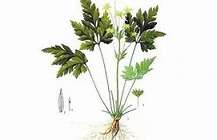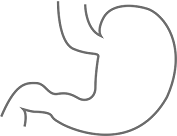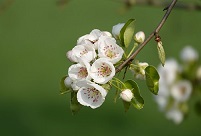Can Coptis Chinensis Be used to Treat Chlamydia?
Date:2019-10-30 click:0
Chlamydia is a Gram-negative pathogen that is widely spread in nature. It used to be considered as a virus and now belongs to the category of bacteria. In fact, however, Chlamydia is a microorganism that is different from both bacteria and viruses.
Coptis Chinensis is an important traditional Chinese medicine with a long history of medicinal use, which can be traced back to the Shennong Herbal Classic of the Han Dynasty. Coptis Chinensis has high medicinal value. Can people use it to treat chlamydia?

Effect:
Anti-inflammatory, Antipyretic and Immune Regulation
Coptis Chinensis and berberine have anti-inflammatory and antipyretic effects. It can enhance the phagocytosis of white blood cells but does not affect the number of white blood cells. It can activate macrophages and enhance the phagocytosis of the reticuloendothelial system.
And it can inhibit cell division, cell respiration, and nucleic acid synthesis and inhibit cancer cells more than normal cells. It also has a certain effect on the digestive system, cardiovascular system, and central depression, as well as blood, lipid, and blood sugar berberine, which has a significant effect on platelet aggregation.
Broad-spectrum antimicrobial and antiviral effects
Berberine is the main antimicrobial component. Berberine inhibits bacteria at low concentrations and kills bacteria at high concentrations. Its antimicrobial mechanism is to inhibit the bacterial nucleic acid and protein metabolism and other ways. The antimicrobial effects of Tetrandrine palmatum and Jatrorrhizine are similar to berberine.

Coptis Chinensis has strong effects on Staphylococcus aureus, Vibrio cholerae, and Streptococcus B but weak effects on Escherichia coli and typhoid bacilli. Coptis Chinensis and berberine have various inhibitory effects on various influenza viruses, pathogenic fungi, amoeba protozoa, Chlamydia and Trichomonas.
The ingredients and pharmacological effects of Coptis Chinensis are complex, and the current technical level can not accurately explain the adverse reactions of Coptis Chinensis. But Coptis Chinensis is bitter and cold in property. Overtaking it for a long time can easily injure the spleen and stomach and cause diarrhea, which affects the function of the intestine and stomach, thus affecting appetite and leading to indigestion.
Coptis Chinensis has antipyretic, detoxicating, and anti-inflammatory effects and has inhibitory effects on E. coli, etc. People can put it in the boiled water to drink it as tea, but for people with spleen and stomach deficiency and cold, Yin deficiency and Jin injury, they should use it cautiously.

Although Coptis Chinensis can be used to inhibit Chlamydia infection, it tastes bitter and astringent, has an astringent effect on the gastrointestinal tract, and is not suitable for large quantities of food, nor for long-term consumption, so as to avoid constipation caused by the astringent effect on the gastrointestinal tract.
In addition, Coptis Chinensis has toxic and side effects, which are not suitable for large amounts of food or intravenous drip, in order to avoid toxic reactions. In order to reduce the possibility of recurrence of Chlamydia, patients can choose Diuretic and Anti-inflammatory Pill to treat.
Diuretic and Anti-inflammatory Pill contains more than fifty various kinds of natural herbs, such as plantain seed, dianthus superbus, polygonum aviculare, angelica sinensis, radix paeoniae Rubra and safflower. These ingredients make the pills effective in killing bacteria, viruses, pathogens, mycoplasma, Chlamydia, gonorrhea, eliminating inflammation.

What’s more, it possesses the functions of clearing heat, detoxicating, activating blood and Qi, relieving pain, and stranguria. It can improve the internal environment of the urogenital system of patients, so that mycoplasma, Chlamydia can not survive, but also can help patients adjust the whole body, improve resistance, so as to prevent a recurrence. In addition, patients should avoid drinking, spicy, and irritating food because it is easy to induce non-gonococcal urethritis.



